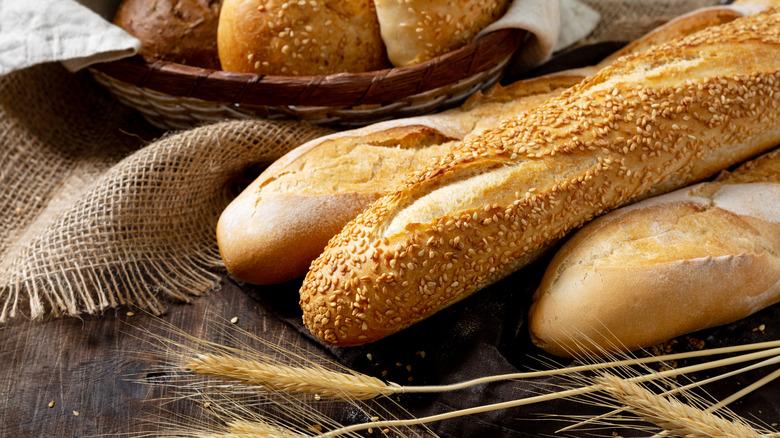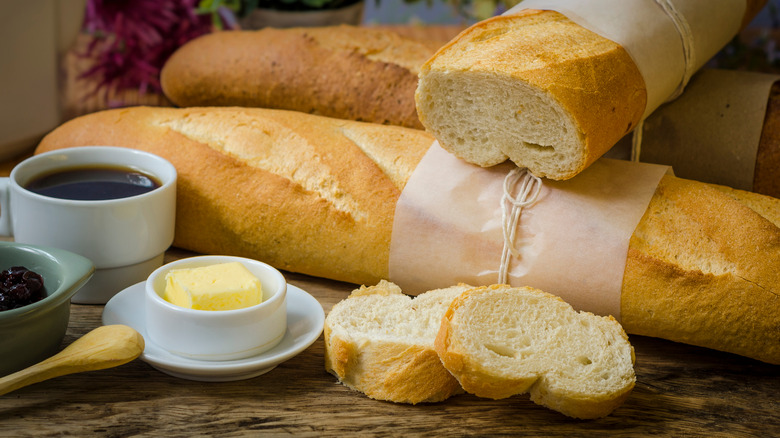The Significant Role Bread Played In The French Revolution
Bastille Day is celebrated each year on July 14, and it marks the anniversary of the Bastille fortress storming — the beginning of the French Revolution, per the British Library. They report that Bastille symbolized the monarchy, and the attack represented the distrust and anger that French citizens held towards their rulers.
According to Smithsonian Magazine, we wouldn't have the restaurants we know and love today without post-Revolution French society, since the Revolution eliminated the guild system, making it easier for more people to pursue culinary careers and open restaurants, which led Paris to become an epicenter of culinary arts — a title that holds true to this day. Plus, they report that the decreased number of nobles remaining in France left many personal chefs seeking employment, and they began to pursue the restaurant business.
There were a number of reasons the French public decided to revolt against their government, but the lack of access to bread had a major hand in motivating the people.
Let them eat ... bread?
Bread was actually at the heart of the French Revolution, and a major motivator for people revolting against the king, reports Smithsonian Magazine. They report that wages didn't match up to the cost of living at the time, meaning the average French citizen was spending up to half a day's wage on bread — and later, that number shot up to around 88% of wages, due to grain crop failures.
The quote "Let them eat cake" is often misattributed to Marie Antoinette, the Queen of France at the time of the Revolution, reports Britannica. The story goes that she was told that her starving subjects had no bread, and she responded with the mindless quote. Though the queen probably didn't actually say the phrase, it symbolizes how she and the king turned a blind eye to their people's suffering — they spent extravagant amounts of money on gifts while the country was in debt, per History Answers.
Though the country of France faced deeper issues in its government pre-Revolution, the rising cost of bread was a major motivator for the lower-class citizens.

